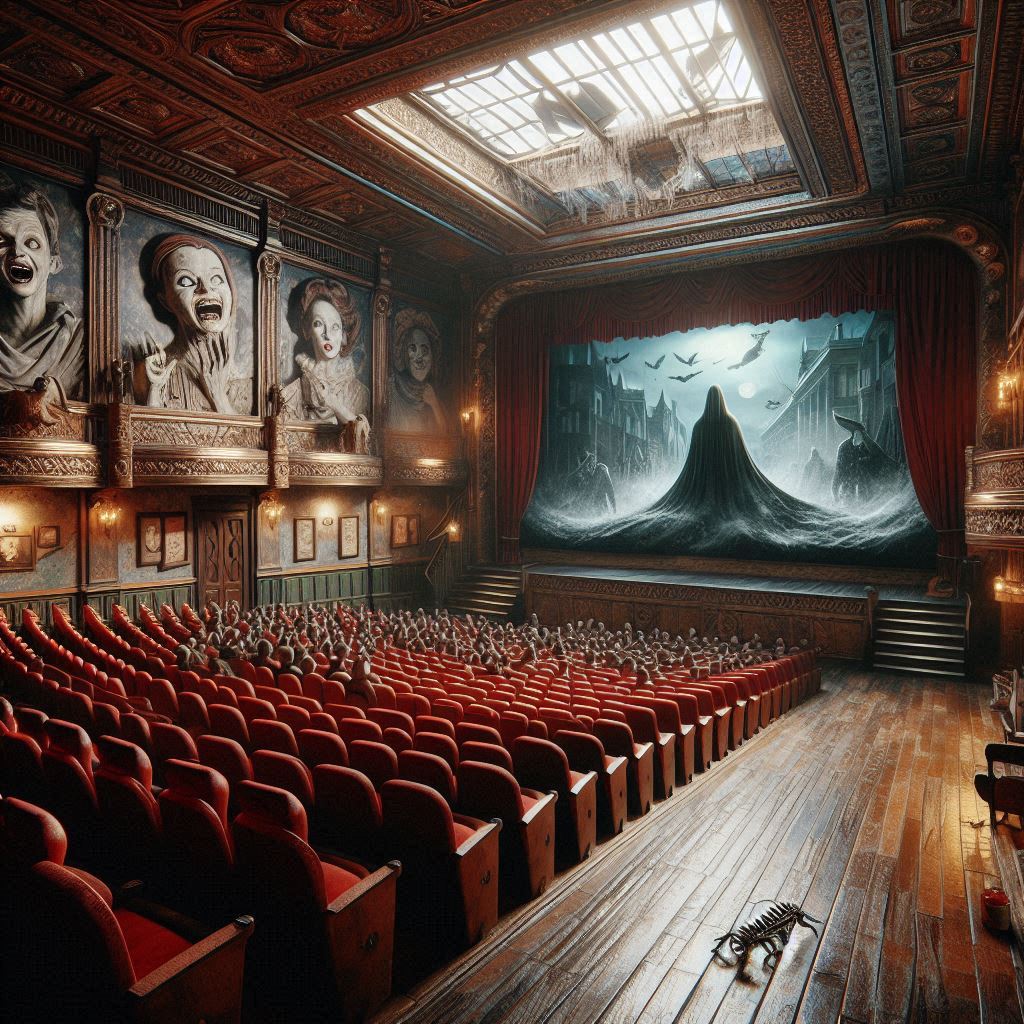Theatrophobia
Fear of Theaters
Jump to the Article

Theatrophobia: A Sociological Exploration of the Fear of Theaters
Theatrophobia, the fear of theaters, is a lesser-known anxiety disorder that can significantly impact an individual's social and cultural life. While often overshadowed by more common phobias like stage fright or social anxiety, theater phobia can lead to feelings of isolation, avoidance, and missed opportunities. This article delves into the sociological dimensions of theater phobia, examining the cultural, historical, and social factors that contribute to this fear.
Theatrophobia: A Sociological Perspective on the Fear of Theaters
Theatrophobia, the fear of theaters, is a specific phobia that, while less common than others like stage fright (Glossophobia) or social anxiety disorder, can significantly impact an individual's social and cultural life. This fear can manifest in various ways, from a general unease to a full-blown panic attack.
Sociological Underpinnings of Theatrophobia
To understand theatrophobia, we must delve into its sociological roots. Several factors can contribute to this fear:
- Social Anxiety and Fear of Judgment: Many people with theatrophobia experience heightened social anxiety, particularly in crowded public settings. The theater, with its dim lighting and potential for close proximity to strangers, can exacerbate these feelings.
- Cultural and Historical Factors: Historical events, such as terrorist attacks or mass shootings, can shape societal perceptions of public spaces. These events can lead to increased vigilance and heightened anxiety, particularly in crowded venues like theaters.
- Architectural and Environmental Factors: The physical design of theaters can influence feelings of safety and security. Factors such as seating arrangements, lighting, and acoustics can contribute to feelings of claustrophobia or vulnerability.
The Aurora Theater Shooting and Its Impact on Theatrophobia
The 2012 Aurora Theater mass shooting was a tragic event that undoubtedly had a profound impact on public perceptions of movie theaters. In the aftermath of such a traumatic event, it is not surprising that some individuals may have developed or intensified their fear of theaters.
The shooting highlighted the vulnerability of public spaces and the potential for violence. This increased awareness of risk can lead to heightened anxiety and avoidance behaviors. For some individuals, the theater may have become associated with danger and trauma, making it a place to be avoided.
However, it is important to note that while tragic events can contribute to the development of phobias, they do not determine individual responses. Many people continue to attend theaters without fear, demonstrating the resilience of human behavior.
Overcoming Theatrophobia
While theatrophobia can be a significant challenge, effective strategies for managing and overcoming this fear exist. Cognitive-behavioral therapy (CBT) is a widely used treatment approach that can help individuals identify and challenge negative thoughts and beliefs associated with theaters. Exposure therapy, a gradual exposure to feared situations, can also be effective in reducing anxiety and fear.
By understanding the sociological and psychological factors that contribute to theatrophobia, we can develop more effective interventions to help individuals overcome this fear and participate fully in social and cultural life.
Sources
- "Survivors of Aurora, Colorado, mass shooting still haunted 10 years later" - PBS. Accessed December 4, 2024.
